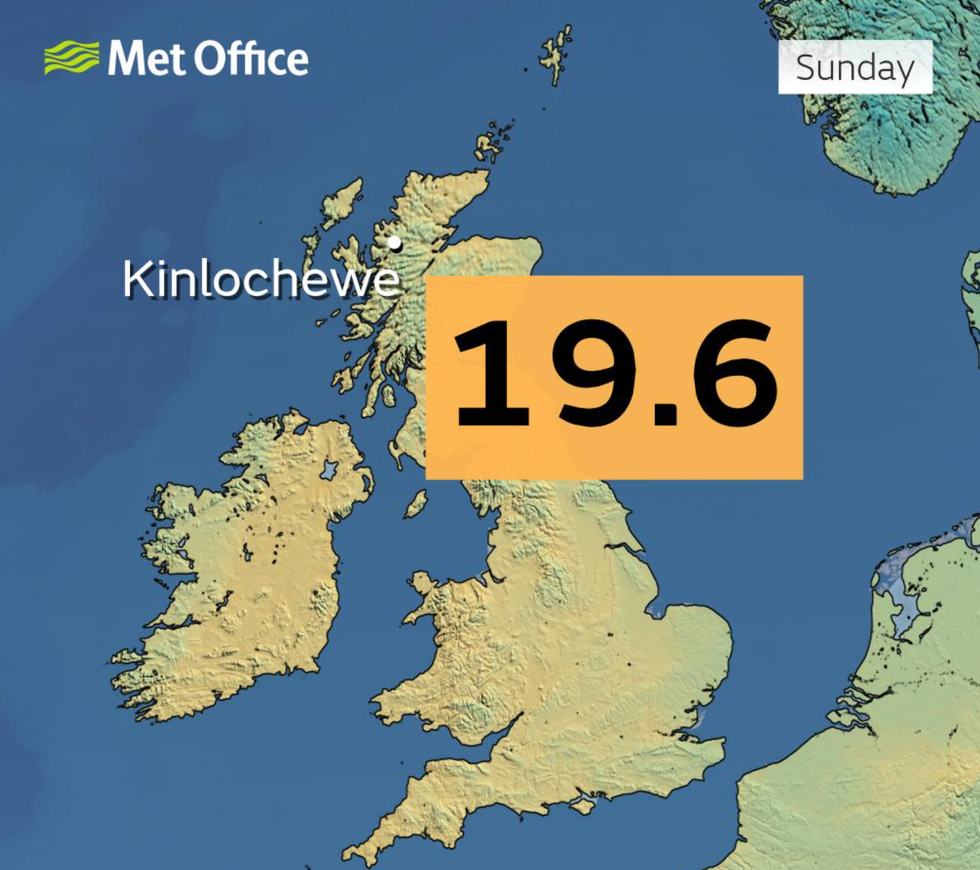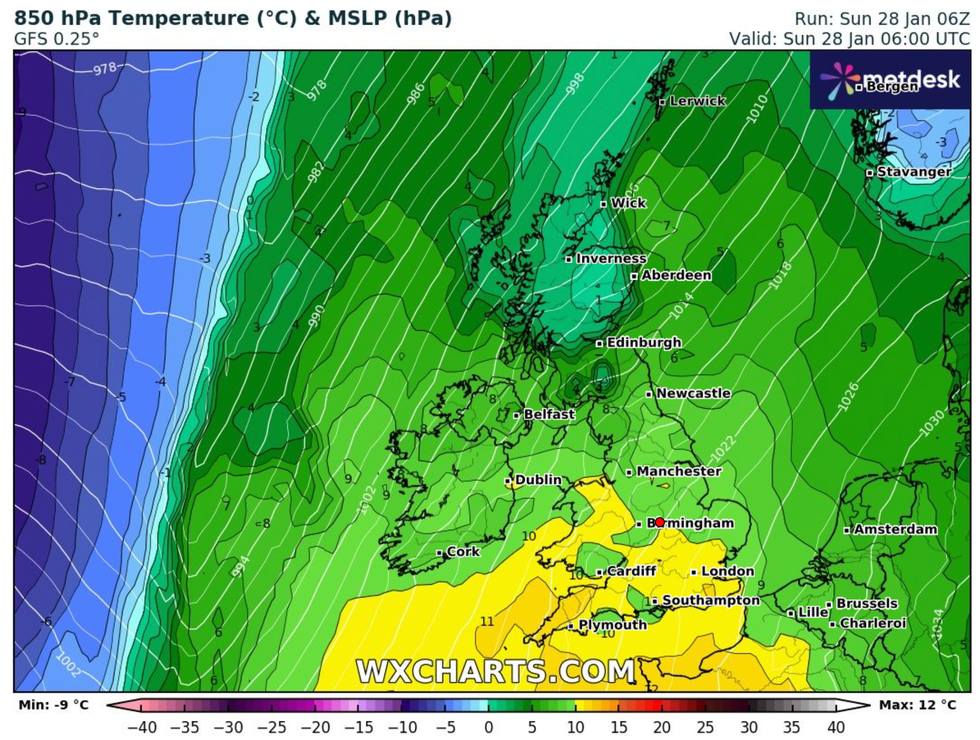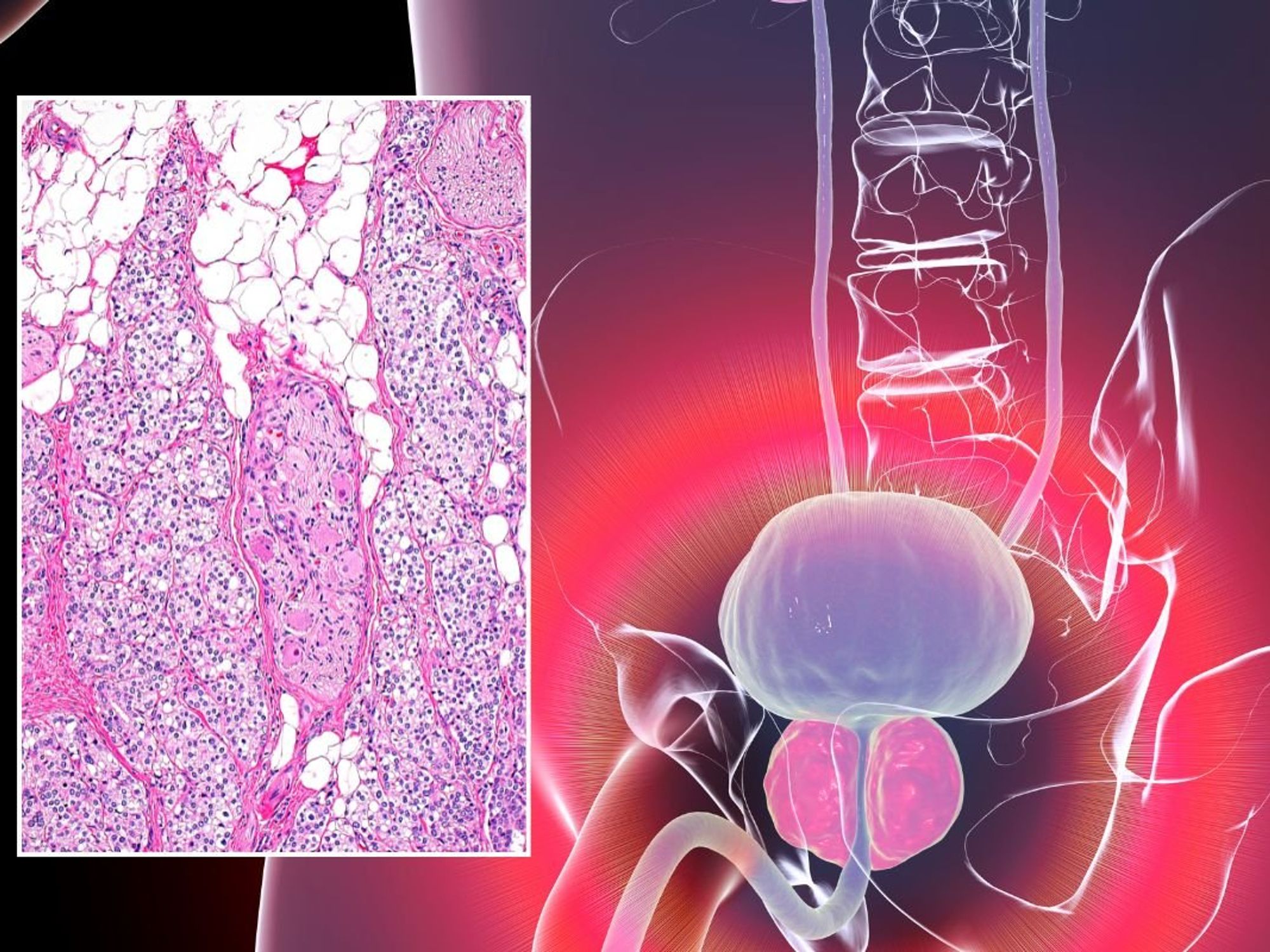UK weather: Records smashed as Britain sees hottest January day ever with temperatures warmer than Ibiza

The Met Office confirmed that the UK has broken the January temperature record
Don't Miss
Most Read
Temperatures have rocketed to 19.6C in Britain as parts of the UK see conditions "way above where they should be" during the middle of winter.
The bizarre highs up to 19C were felt in North Wales, Scotland and south west England throughout the day.
While temperatures surged, parts of the UK were hotter than holiday hotspots such as Ibiza, Athens and Corfu where conditions peaked at 17C.
This afternoon, the Met Office confirmed that the UK has broken the January temperature record - which was set over six decades ago.
 Warm air has spread north across western Europe, including the UK, which has brought warm temperatures | Net Weather
Warm air has spread north across western Europe, including the UK, which has brought warm temperatures | Net WeatherThe 19.6C record temperature was recorded in Kinlochewe, in the Scottish Highlands.
Senior Meteorologist and Social Commentator, Jim Dale told GB News: "While everyone is contemplating snow to come in February, this sneaks up on us!
"Staggering temperatures for what is on average the coldest time of the year.
"It may have been possible to see this coming in the synoptic set up but these kinds of temperatures at this time of year - while pleasant - are scary and do not bode well for the months ahead."
LATEST DEVELOPMENTS:

Temperatures have rocketed to 19.6C in Britain as parts of the UK see conditions 'way above where they should be' during the middle of winter
|Met Office
A spokesperson for the Met Office said that while temperatures were expected to hit around 17C, they did not predict temperatures as high as nearly 20C.
"We were originally forecasting a maximum temperature around 17C, but it has been a degree or two higher than what was originally forecast," they told The Daily Mirror.
"We knew there was a chance of hitting the high teens in one or two spots.
"The reason for the quite extreme temperatures today is the Foehn Effect. This is where you tend to see anomalously high temperatures above high ground - in this case the Scottish mountains - due to a southerly wind."

The bizarre highs up to 19C were felt in North Wales, Scotland and south west England throughout the day
|WXCHARTS
The Foehn Effect is the change from wet and cold conditions on one side of a mountain, to warmer, drier ones on the other.
Following a spate of wintry weather, a shift in the Jet Stream means the air covering the UK is now coming from the south-west - which is much milder by comparison.
The milder conditions are expected to stay until mid-February when a deep freeze is predicted to strike.










